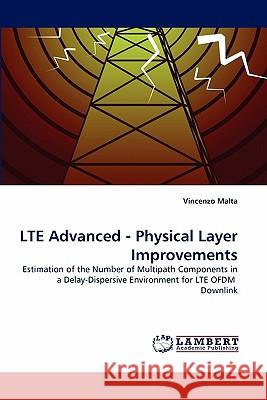LTE Advanced - Physical Layer Improvements » książka
LTE Advanced - Physical Layer Improvements
ISBN-13: 9783844307931 / Angielski / Miękka / 2011 / 108 str.
Orthogonal Frequency Division Modulation (OFDM) is the modulation employed by the LTE downlink physical layer. Recent studies on pilot-aided channel estimation, show that assuming a parametric channel model can effectively improve the estimate accuracy. The algorithms based on this model perform the frequency response estimation of a multipath environment through the knowledge of the tap-delay parameters. This work focuses on the estimation of the number of delays, required by the tap-delay estimators. For this purpose the state-of-the-art detection scheme is investigated over a static and a dynamic channel. Furthermore, it is compared with an approach based on a simple threshold operation. It's shown that over the static channel, MDL exhibits a certain robustness against the time observation reduction, while the Threshold algorithm suffers from a signi cant increase in the estimate's error. Tests over the dynamic channel show a general performances decrement. However MDL average error doesn't drastically get worse as the Threshold one. The state-of-the-art performances then, are not exceeded, but the noticed problems still leave this topic open.
Orthogonal Frequency Division Modulation (OFDM) is the modulation employed by the LTE downlink physical layer. Recent studies on pilot-aided channel estimation, show that assuming a parametric channel model can effectively improve the estimate accuracy. The algorithms based on this model perform the frequency response estimation of a multipath environment through the knowledge of the tap-delay parameters. This work focuses on the estimation of the number of delays, required by the tap-delay estimators. For this purpose the state-of-the-art detection scheme is investigated over a static and a dynamic channel. Furthermore, it is compared with an approach based on a simple threshold operation. Its shown that over the static channel, MDL exhibits a certain robustness against the time observation reduction, while the Threshold algorithm suffers from a significant increase in the estimates error. Tests over the dynamic channel show a general performances decrement. However MDL average error doesnt drastically get worse as the Threshold one. The state-of-the-art performances then, are not exceeded, but the noticed problems still leave this topic open.











